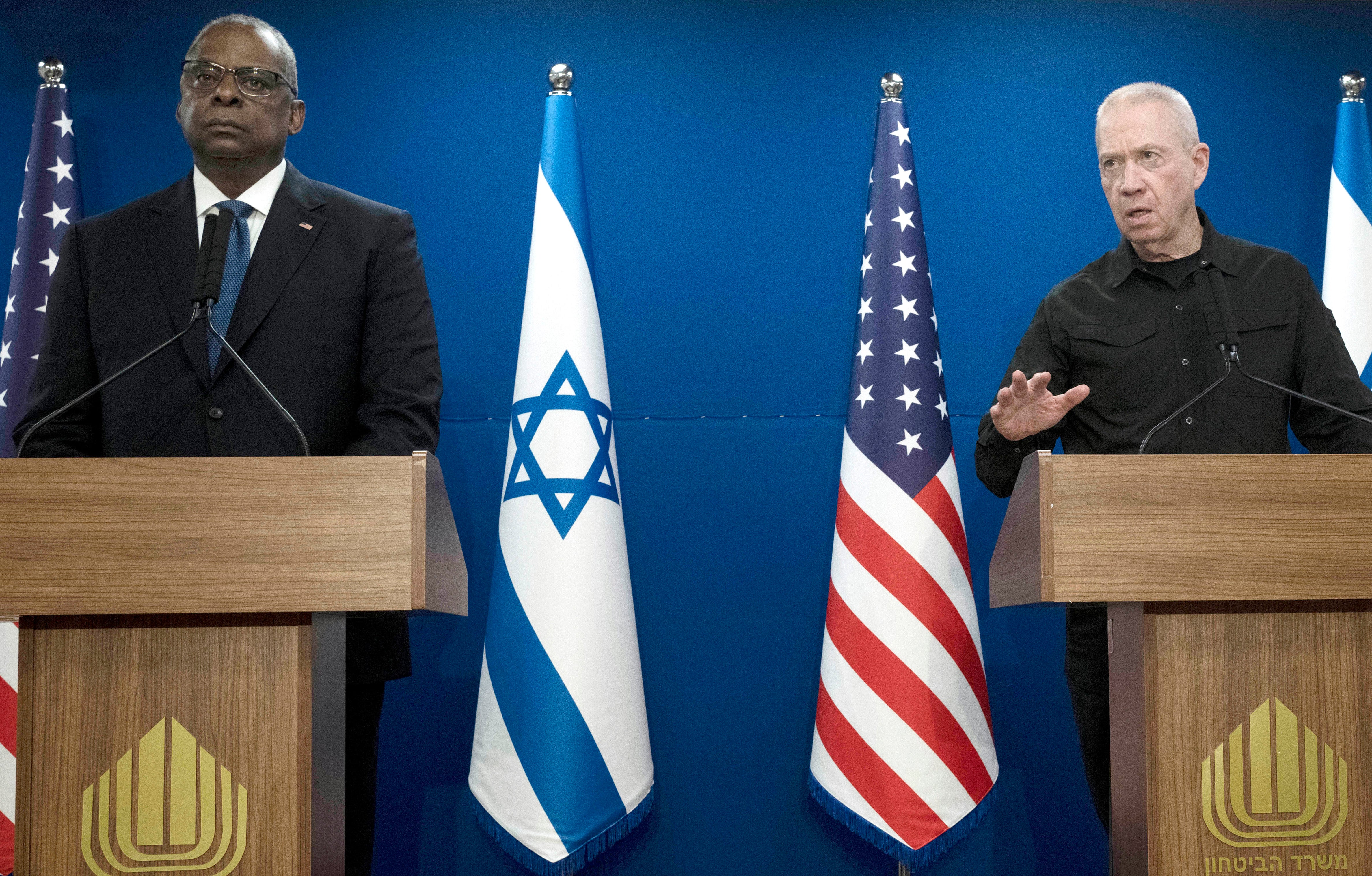US and Israeli defense chiefs to meet Tuesday as tensions rise over Gaza
The Pentagon says Defense Secretary Lloyd Austin will meet with Israel’s minister of defense and discuss ways to address the Hamas threat other than conducting a ground invasion of the southern Gaza city of Rafah

Your support helps us to tell the story
From reproductive rights to climate change to Big Tech, The Independent is on the ground when the story is developing. Whether it's investigating the financials of Elon Musk's pro-Trump PAC or producing our latest documentary, 'The A Word', which shines a light on the American women fighting for reproductive rights, we know how important it is to parse out the facts from the messaging.
At such a critical moment in US history, we need reporters on the ground. Your donation allows us to keep sending journalists to speak to both sides of the story.
The Independent is trusted by Americans across the entire political spectrum. And unlike many other quality news outlets, we choose not to lock Americans out of our reporting and analysis with paywalls. We believe quality journalism should be available to everyone, paid for by those who can afford it.
Your support makes all the difference.Defense Secretary Lloyd Austin will meet with Israel's minister of defense on Tuesday and discuss ways to defeat Hamas other than conducting a ground invasion of the southern Gaza city of Rafah, the Pentagon said, at a time of rising tensions between the two countries.
Maj. Gen. Pat Ryder, Pentagon press secretary, told reporters Monday that Austin's planned morning meeting with Israeli Defense Minister Yoav Gallant is still on, even though Israel abruptly canceled the visit of a high-level delegation to Washington this week.
Israeli Prime Minister Benjamin Netanyahu canceled the visit in protest over Monday’s U.N. Security Council decision calling for an immediate cease-fire. The U.S. abstained, deciding not to use its veto power, and the resolution passed 14-0.
“There are ways to go about addressing the threat of Hamas, while also taking into account civilian safety. A lot of those are from lessons, our own lessons, conducting operations in urban environments,” Ryder said. “I would expect the conversations to cover those kinds of things.”
Israel says it cannot defeat Hamas without going into Rafah, where it says the group has four battalions composed of thousands of fighters.
Israel’s offensive has killed over 32,000 Palestinians, according to local health officials, and driven a third of Gaza’s population to the brink of starvation. It was launched in response to Hamas’ Oct. 7 attack on Israel, which killed some 1,200 people.
Hamas-led militants also took around 250 people hostage. They are still holding around 100 hostages, and the remains of around 30 others, after most of the rest were freed during a cease-fire last year in exchange for the release of Palestinian prisoners.
The United Nations Security Council resolution calls for a cease-fire during the Muslim holy month of Ramadan. Netanyahu accused the U.S. of “retreating” from a “principled position” by allowing the vote to pass without conditioning the cease-fire on the release of hostages.
The dispute signals an erosion in the U.S.-Israel relationship that has been under a microscope for months as the military assault on Hamas continues, escalating the humanitarian crisis in Gaza.
White House national security spokesman John Kirby said the U.S. was disappointed in the decision to cancel the delegation's visit this week. He said the talks with Gallant would likely include some of what the U.S. had planned to discuss with the Israeli delegation on the possible Rafah invasion.
The White House was aiming to talk to the Israelis about possible alternatives to a ground invasion of Rafah.
Gallant met Monday with Secretary of State Antony Blinken and national security adviser Jake Sullivan. Kirby said those meetings, however, had not been intended as a replacement for the delegation meetings.